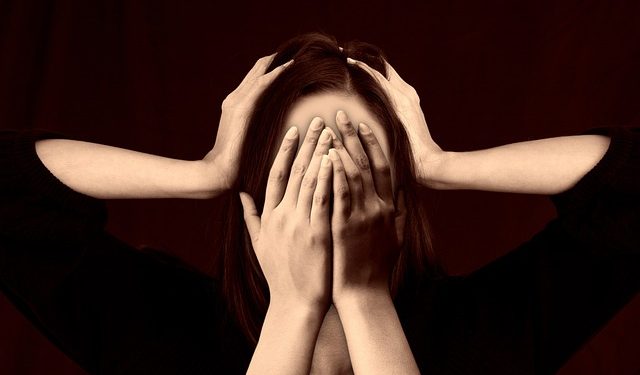Cultural sensitivity is the awareness and understanding of different cultures and how they impact our interactions with others. It's about recognizing and respecting the differences in beliefs, values, and behaviors of different cultural groups. In therapy, cultural sensitivity is important because it allows therapists to provide effective treatment to clients from diverse backgrounds.
In addition, cultural sensitivity helps to promote inclusivity and reduce bias in therapy. By being culturally sensitive, therapists can create a safe and welcoming environment where clients feel seen and heard. This is especially important for clients who may feel marginalized or discriminated against in society.
What is diversity and inclusion in therapy?
Diversity in therapy refers to the differences in race, ethnicity, gender, sexual orientation, socioeconomic status, and other factors that make each client unique. Inclusion in therapy means creating a safe space where all clients feel welcome and valued, regardless of their differences.
As therapists, it's important to be aware of our own biases and assumptions about different cultural groups. We need to recognize that our own cultural background and experiences may influence our perceptions and interactions with clients. By being aware of these biases, we can work to overcome them and provide effective therapy to clients from all backgrounds.
Why is cultural sensitivity important in therapy?
Cultural sensitivity is important in therapy because it helps to build trust and rapport with clients. When clients feel that their psychologist in Dubai understands and respects their cultural background, they are more likely to open up and share their experiences. This can lead to more effective therapy and better outcomes.
In addition, cultural sensitivity helps to reduce the risk of miscommunication and misunderstandings in therapy. When therapists are aware of different cultural norms and expectations, they can communicate more effectively with clients and avoid misunderstandings that may hinder therapy progress.
Understanding cultural competence
Cultural competence is the ability to understand, appreciate, and effectively work with individuals from diverse cultural backgrounds. It involves being aware of one's own cultural background and biases, as well as the cultural background of clients.
Cultural competence involves several key components, including:
- Cultural awareness: Understanding one's own cultural background and how it may impact interactions with clients.
- Cultural knowledge: Understanding the cultural norms and values of different cultural groups.
- Cultural skills: Being able to effectively communicate and work with clients from diverse cultural backgrounds.
- Cultural encounters: Having direct interactions with individuals from diverse cultural backgrounds.
- Cultural desire: Having a genuine desire to understand and work effectively with individuals from diverse cultural backgrounds.
Common cultural differences in therapy
There are several common cultural differences that therapists should be aware of when working with clients from diverse backgrounds. These include:
- Communication style: Different cultural groups may have different communication styles, such as direct vs. indirect communication or verbal vs. nonverbal communication.
- Family dynamics: Family dynamics may vary greatly across different cultural groups. For example, some cultures may place a strong emphasis on collectivism and family unity, while others may emphasize individualism.
- Attitudes towards mental health: Different cultural groups may have different attitudes towards mental health and seeking help for mental health issues. Some cultures may view mental health issues as a sign of weakness or shame, while others may be more open to seeking treatment.
- Beliefs about therapy: Different cultural groups may have different beliefs about therapy and what it entails. Some cultures may view therapy as a last resort, while others may view it as a valuable tool for personal growth and healing.
Techniques for promoting cultural sensitivity in Therapy
There are several techniques that therapists can use to promote cultural sensitivity in therapy. These include:
- Self-reflection: Therapists should reflect on their own cultural background and biases, and how they may impact their interactions with clients.
- Education: Therapists should educate themselves on different cultural norms and values, in order to better understand and communicate with clients from diverse backgrounds.
- Active listening: Therapists should actively listen to clients and ask questions to better understand their experiences and perspectives.
- Empathy: Therapists should show empathy and understanding towards clients, regardless of their cultural background.
- Flexibility: Therapists should be flexible and adaptable in their approach to therapy, in order to best meet the needs of each client.
Integrating cultural sensitivity in therapy sessions
Integrating cultural sensitivity into therapy sessions involves several key steps. These include:
- Building rapport: Therapists should build rapport with clients and create a safe and welcoming environment where clients feel valued and respected.
- Identifying cultural factors: Therapists should identify the cultural factors that may be impacting the client's mental health and well-being.
- Incorporating cultural factors: Therapists should incorporate cultural factors into therapy sessions, in order to better understand and address the client's needs.
- Collaborating with clients: Therapists should collaborate with clients to develop culturally sensitive treatment plans that take into account the client's cultural background and needs.
Overcoming Challenges in cultural sensitivity
Cultural sensitivity can be challenging, especially when working with clients from vastly different cultural backgrounds. Some of the common challenges include:
- Language barriers: Clients who speak a different language may have difficulty communicating their experiences and needs.
- Stereotyping: Therapists may inadvertently stereotype clients based on their cultural background, which can hinder therapy progress.
- Differences in beliefs and values: Therapists may have difficulty understanding and accepting cultural beliefs and values that are different from their own.
- Power dynamics: Therapists may hold power over clients, which can create a power dynamic that may be difficult to navigate in a culturally sensitive manner.
To overcome these challenges, therapists should focus on building trust and rapport with clients, actively listening to their experiences and needs, and collaborating with clients to develop culturally sensitive treatment plans.
Conclusion
Cultural sensitivity is an essential component of effective therapy. By being culturally sensitive and aware, therapists can create a safe and welcoming environment where clients feel valued and respected. This can lead to more effective therapy and better outcomes for clients.
To promote cultural sensitivity in therapy, therapists should focus on self-reflection, education, active listening, empathy, and flexibility. By integrating cultural sensitivity into therapy sessions, therapists can better understand and address the unique needs of clients from diverse cultural backgrounds.
As therapists, it's important to recognize and overcome the challenges of cultural sensitivity in order to provide effective therapy to all clients, regardless of their cultural background. By doing so, we can honor diversity and inclusion in therapy and promote mental health and well-being for all.
























